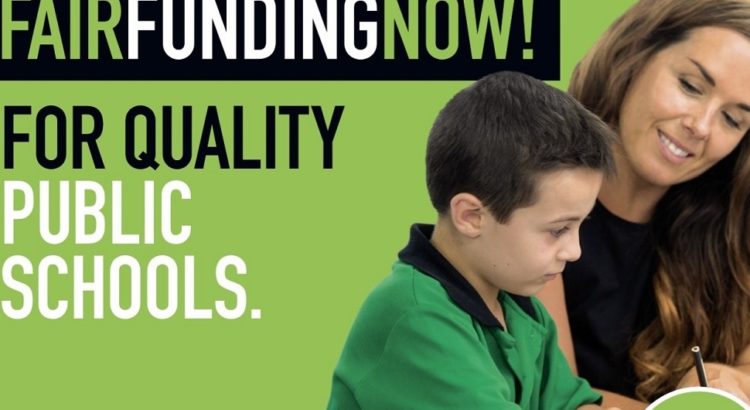Europa/Reino Unido/ The Guardian
Resumen: Oxford y Cambridge han fallado en reconocer el potencial de los solicitantes en desventaja y la necesidad de mejorar sus esfuerzos, de acuerdo a la politica gubernamental de darles un mayor acceso a la educación . En declaraciones emitidas en una conferencia de educación, Les Ebdon, director de la Oficina de Acceso Justo (Offa), dijo: “¿Creen que hay un acceso justo a Oxbridge? Bueno, obviamente no “. Ebdon criticó las dos universidades de élite por no utilizar sistemáticamente datos sobre los antecedentes de los solicitantes en lugar de depender de los requisitos de entrada elevadas. “Si me preguntan, ‘¿Deberían hacer más?’, La respuesta es sí, obviamente, porque tienen pocos estudiantes de los grupos más desfavorecidos, pocos estudiantes en las comidas escolares gratuitas y pocos estudiantes de diferentes grupos étnicos minorías “, dijo Ebdon. “Así que sí, que sin duda deberían estar haciendo más, y ese es mi trabajo, asegurar de que no hacen más”.
Director of Office for Fair Access praises universities’ efforts so far but says more needs to be done to identify potential in poorer applicants
Oxford and Cambridge universities have failed to recognise potential among disadvantaged applicants and need to improve their efforts, according to the government’s higher education access tsar. In outspoken remarks at an education conference, Les Ebdon, director of the Office for Fair Access (Offa), said: “Do I think there’s fair access at Oxbridge? Well, obviously not.”
Ebdon also criticised the two elite universities for failing to systematically use data on applicants’ backgrounds rather than relying on high entry requirements. “If you ask me, ‘Should they be doing more?’, the answer is yes, obviously, because they have so few students from [the most disadvantaged groups], so few students on free school meals, so few students from different ethnic minorities,” Ebdon said. “So yes, they certainly should be doing more, and that’s my job, to make sure that they do do more.”
Ebdon told the conference that as the director of fair access to education, he required Cambridge and Oxford “to do more work than anyone else” to improve access and opportunities. “They’ve moved significantly. We’re seeing the highest level of state school students at Oxbridge for over 30 years.
“It’s a real mountain to climb. Part of that mountain, of course, is the fact that typically, Oxbridge are asking for three A*s for entry, and there are very few people in state schools who get that, and that’s why it’s important they work with schools to raise attainment, because that is where the real barrier is. Having said that, you can get in to some parts of Oxbridge on lower grades, but that typically is [for] Classics.
“Oxbridge need to make a decision, and it is a decision for them as to what the balance of subjects is. They have a series of decisions to make and I actually am legally not allowed to interfere with the admissions process. But I wish they would recognise potential more than they currently do.”
A spokesperson for Oxford disputed Ebdon’s remarks, saying the university “makes extensive, systematic use of contextual data to identify high potential in students from disadvantaged backgrounds” along with outreach programmes costing £4m a year, summer schools and £8m annually in financial support.
“This is a fair and effective system, which, as Professor Ebdon says, is delivering significant progress. In 2016, 35.2% of our accepted undergraduates came from a disadvantaged category, compared to 31.5% in 2010. For 2017 entry, disadvantaged candidates have, for the first time ever, been more successful in winning offers to Oxford than the UK average,” the spokesperson said.
Cambridge also rejected Ebdon’s criticisms, saying: “Our admissions decisions are based on academic considerations alone. We aim to widen participation whilst maintaining high academic standards. The greatest barrier to participation at selective universities for students from disadvantaged backgrounds is low attainment at school.”
Cambridge also uses contextual data “to ensure that the achievements of students from disadvantaged backgrounds are assessed in their full context and that students with great academic potential are identified”, a spokesperson said
Ebdon’s comments came as his annual report on widening access to English universities was published. It says the sector is failing to do enough to encourage mature students and those taking part-time courses. Both groups have seen the biggest falls in participation since tuition fees were raised to £9,000 in 2012, and are showing few signs of recovery.
The annual review found that the proportion of students from disadvantaged families who dropped out of university after one year rose sharply in 2014-15, and was much higher than those from well-off backgrounds.
The report also showed that an undergraduate’s chances of gaining at least a 2:1 degree class varied significantly by ethnic background. While 76% of white students graduated with a first or 2:1, only 52% of black students were awarded the same degree classes.
Since you’re here …
… we have a small favour to ask. More people are reading the Guardian than ever but advertising revenues across the media are falling fast. And unlike many news organisations, we haven’t put up a paywall – we want to keep our journalism as open as we can. So you can see why we need to ask for your help. The Guardian’s independent, investigative journalism takes a lot of time, money and hard work to produce. But we do it because we believe our perspective matters – because it might well be your perspective, too.
I appreciate there not being a paywall: it is more democratic for the media to be available for all and not a commodity to be purchased by a few. I’m happy to make a contribution so others with less means still have access to information.
Fuente: https://www.theguardian.com/education/2017/jun/29/oxford-cambridge-improve-access-disadvantaged-students







 Users Today : 49
Users Today : 49 Total Users : 35460352
Total Users : 35460352 Views Today : 70
Views Today : 70 Total views : 3419098
Total views : 3419098